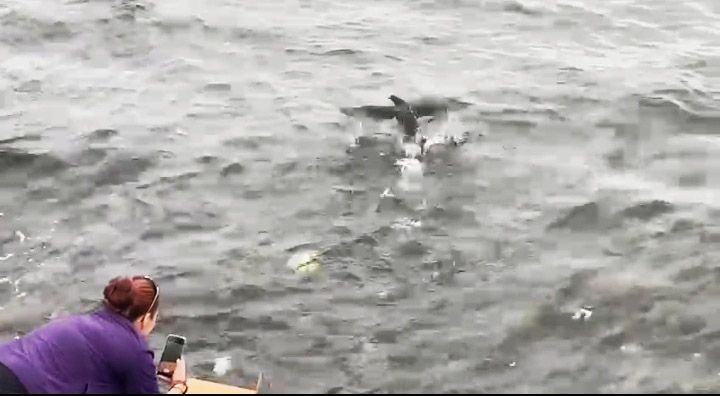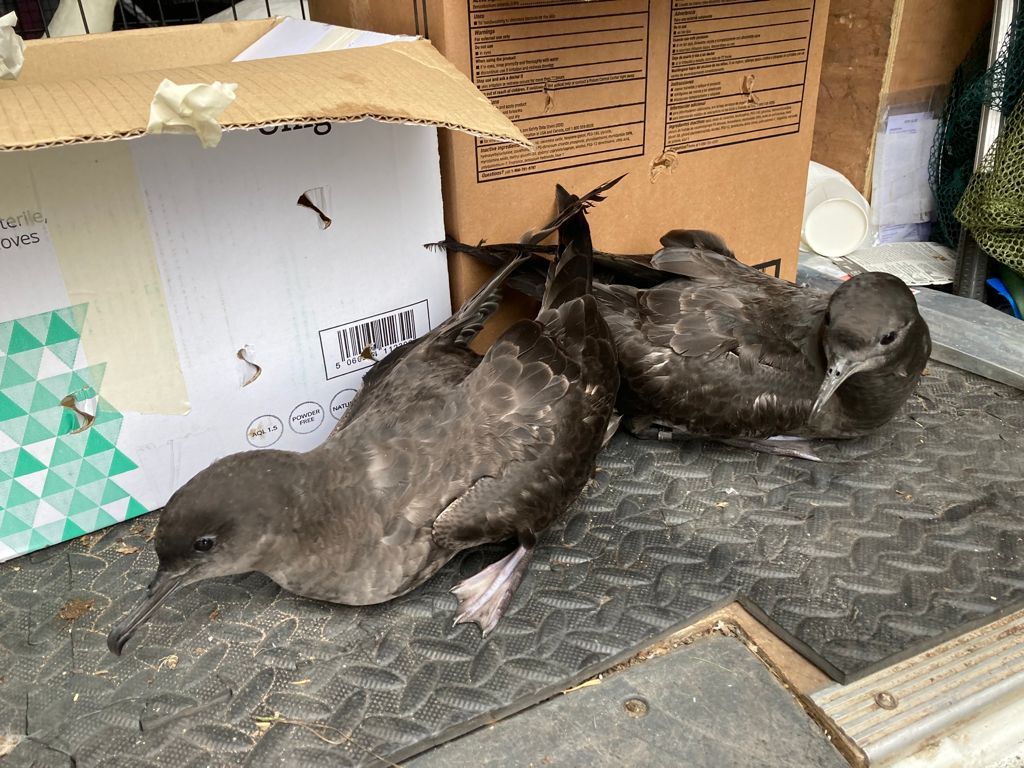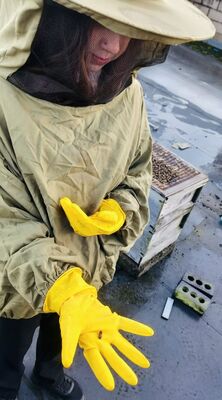AS the giant cruise ship Anthem of the Sea sailed through the darkness towards Belfast last week, two unusual passengers hitched a lift. The pair of sooty shearwaters were more than welcome to take a breather on deck – but what the crew didn’t know was that once they arrive on dry land, these amazing birds can’t take off.
They have evolved to be almost useless on land – their feet are too far back on their bodies to enable them to sit up, and their wings are so straight and thin that they can’t get the necessary uplift.
And so began an incredible rescue mission which ended in them being returned safely to sea to continue their journey – a journey that is actually planet earth’s longest migration.
These wee stowaways happened to land on the biggest ship to visit Belfast for almost half a century – the Anthem of the Sea can carry 4,950 passengers and 1,500 crew, although those numbers are now restricted by Covid.
The crew got concerned that their hitchhikers didn't seem interested in returning to sea and so the captain contacted Belfast Harbour Police. The Harbour Police immediately knew who to call – Debbie ‘Doolittle’ Nelson.
“I’ve worked with the Harbour Police many times,” Debbie told Dúlra this week. Debbie is a phenomenon who tours the country rescuing birds and animals, if necessary taking them back to her Country Antrim home to recuperate. She has saved many thousands of creatures.
“They’d actually sent me a photograph of the birds and I thought they were Manx shearwaters until they opened the box and I realised they were a bit bigger and more black.”

In Irish the two species are differentiated only by their colours – canóg dhubh is the Manx, while canóg dhorcha is the sooty.
Debbie certainly is familiar with Manx shearwaters, a seabird not many readers would recognise if it landed on their head. Which isn’t actually impossible, because recently they've been literally falling from the sky and Debbie has been travelling the country rescuing them.
“It’s been crazy over the last two weeks," she said. "They’re all young ones who are leaving the burrows and the parents have left them, and they get distracted by street lights. Just like the sooty shearwaters on the cruise boat, they navigate by the stars and the bright lights confuse them.
“When they fly inland they think the dark road is the sea and they land and can’t get back into the air. Once on the ground they need a hand to get back into the sea. Yesterday I freed one in Ballywalter and I’ve another today, while one was killed on the road.
“They’re so dark that drivers wouldn’t see them at night. At the minute there’s usually four or five a night.”
Light pollution leads to the death of many seabirds who fly at night to avoid predators, only to find that we’re an even more dangerous predator, even if we don’t mean it.
And while Manx shearwaters breed here – one of a pair on Copeland Island in County Down trapped in 2003 is still the oldest bird on record at 55 years old – the sooty shearwaters breed in the Malvinas near Argentina, heading up to the Arctic along the Pacific, passing Ireland in September on their way back to breed. And they don’t travel in flocks but in pairs, like those on the cruise boat, and can travel 45,000 miles in a year, about 400 miles every day.
And although few of us knew that sooty shearwaters even existed, we’re all familiar with something that they inspired. Alfred Hitchcock produced his famous horror film The Birds after thousands of sooty shearwaters fell dead on the streets of Santa Cruz in California in 1961. Others were being sick on the shore or flying into objects. It transpired they had eaten poisoned algae from leaky septic tanks.
Debbie freed the cruise boat shearwaters at Whitehead on the Antrim Coast.
“It’s right on the border of Belfast Lough and it’s a straight route out to sea, far enough from the city and the bright lights,” she said.
Hopefully, this time the stars will guide them safely on their epic 10,000-mile journey to their breeding ground.
• If you’ve seen or heard anything interesting, or have any nature questions, you can text Dúlra on 07801 414804.







